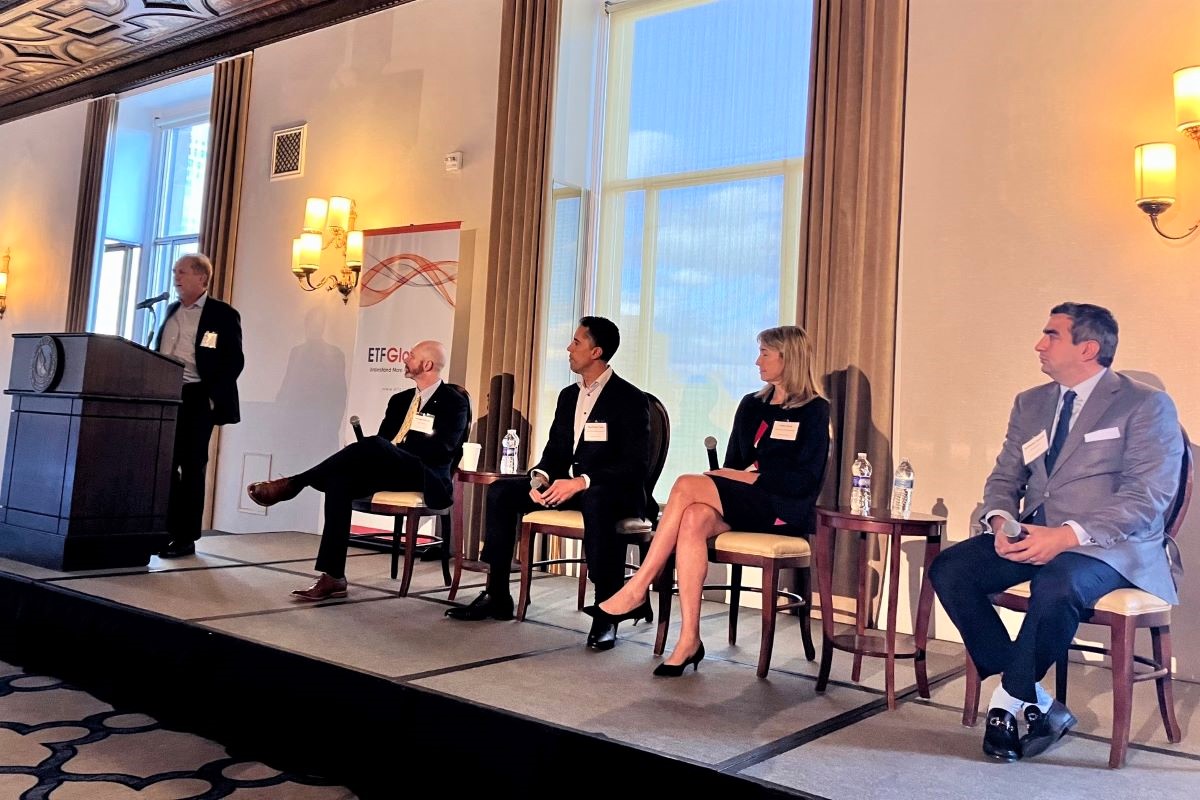Wedged between larger custodian conferences and other year-end industry summits, the Fall 2022 ETP Forum in New York brought together some of the nation’s best thinkers in investment management, exchange-traded products and ESG.
A few key takeaways emerged from the day’s discourse: 1) marketing is critical to help ETFs stand out from competitors in a saturated market, 2) actively managed ETFs have grown in popularity this year amid market volatility, and 3) ESG is evolving. Understanding these issues is important for ETF issuers seeking to promote funds, as well as investors trying to understand the complexities of ESG.
Differentiating through marketing
ETF issuers need strong marketing to help raise both awareness and AUM. Promoting funds through a variety of methods is often an effective approach, with options including digital marketing, broadcast, podcasts, print and social media, among others.
“If you want to capture assets for your ETF, you need a well-thought-out marketing plan to differentiate it from the ever-growing environment of ETFs,” emphasized Mike Castino, SVP, exchange traded products at U.S. Bank Global Fund Services, during the ETP Forum’s New-to-Market ETF Roundtable.
Active ETF approaches on the rise
Meanwhile, keynote speaker Jason Hsu, founder, chairman and CIO of Rayliant Global Advisors, discussed the growing appeal of active ETFs. “Active mutual funds are being converted into active ETFs to maximize tax efficiency,” noted Hsu, whose global investment management group manages more than $15 billion in assets.
The Actively Managed Exchange-Traded Funds panel further explored active approaches in the traditionally passive space of ETFs. While passively managed ETFs rely on indexing, active managers take a more tactical approach and aim to outperform benchmarks. The panelists explained how active ETFs can offer more flexibility, especially regarding derivatives.
With more than half of new ETF launches considered active, advisors are defaulting to investing client assets in both active and passive ETFs. Actively managed ETFs are more expensive than passive counterparts but still typically cheaper than hedge and mutual funds. The panel noted that investors are more likely to accept fees associated with active approaches if those funds can outperform the market.
Evolving ESG
Whether you’re an ETF issuer focused on ESG or a private investor curious about it, understanding the complexities involved is more important than ever. One session at the ETP Forum, A World Divided Over ESG, included a panel debate on the pros and cons of considering ESG issues within the investment process.
Panelist Matt Cole, head of products & investments at Strive Asset Management, also addressed the issue of “greenwashing” and increasing prevalence of “green-smuggling.” The former involves efforts to make companies or funds appear more ESG-friendly than they actually are, while the latter refers to when non-ESG funds use ESG factors — despite the non-ESG leanings of its investors — to influence how companies within the fund behave.
Additionally, the panel discussed how ESG fund performance is tied heavily to the tech sector. With tech underperforming for most of 2022, there’s a common perception that ESG is struggling — largely because most major ESG funds are overweight tech. ESG itself may not be as profitable or unprofitable as people assume, since tech sector performance has been the greater issue. The panel also noted that ESG and non-ESG labels will likely matter less over time as boundaries continue to shift.
The sea change in what had been megatrend-level themes in the industry was apparent throughout the day at the ETP Forum. For firms looking to capitalize on these changes, it may be time to revisit how your investment strategies are packaged and marketed.
● If you’re an ETF issuer, RIA or asset management company looking for marketing and PR, please contact us to learn more about the support that Gregory FCA can provide.
